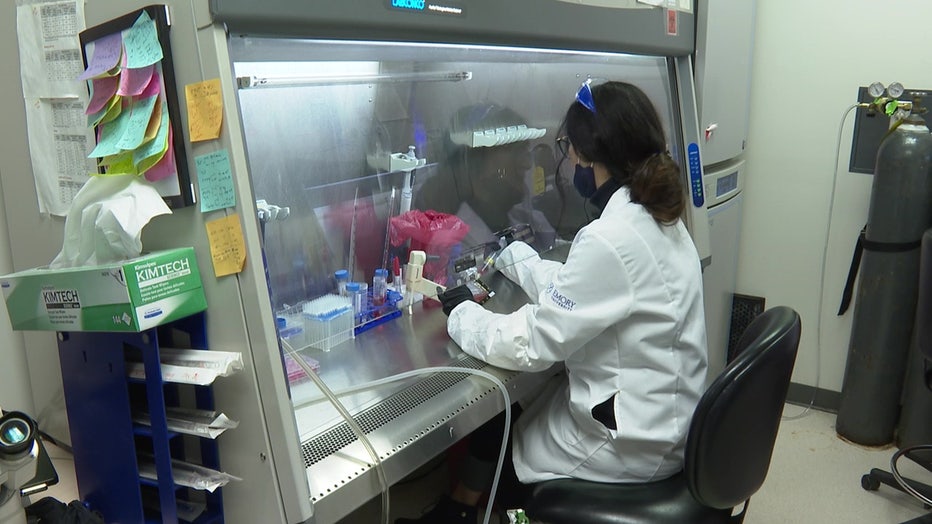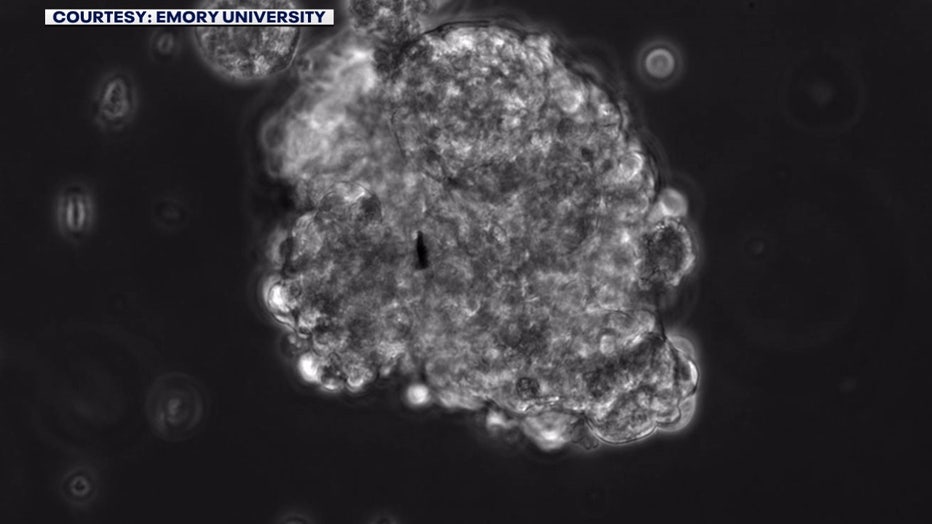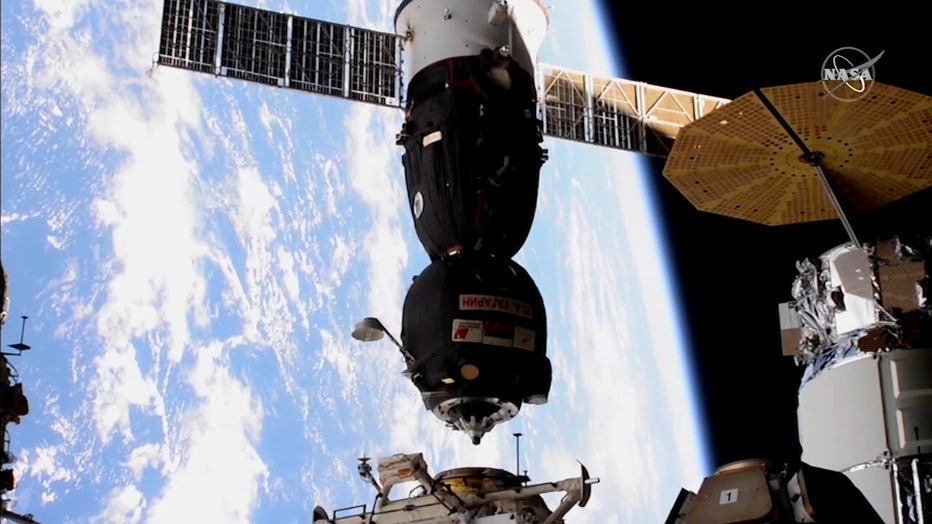Emory heart disease experiment goes to space
Emory University researchers send heart disease experiment to space
Researchers at Emory University's School of Medicine are looking to space to try and solve the problem of heart disease. A research experiment that they developed was set to fly to the International Space Station Sunday morning.
ATLANTA - Researchers at Emory University's School of Medicine are looking to space to try and solve the problem of heart disease. Heart disease is the leading killer in the United States.
Chunhui Xu, an Emory University researcher, says they are working with stem cells to try and save lives, but limitations on earth have them looking up.
"We wanted to study how the cells respond to the space environment because these cells have great potential to be used to treat patients with heart disease," she said.

Emory University Medical School researcher studies how stem cells will respond to space in order to treat patients with heart disease. (FOX 5 Atlanta)
A research experiment that they developed was set to fly to the International Space Station Sunday morning.
The experiment is designed to test whether microgravity speeds up the growth of heart cells. On earth, the cells do not develop as fast.
If successful, this research could pave the way for damaged cells to be replaced in patients with heart disease.
"What we're hoping to learn is how to push them to grow faster and how to push them into getting to a stage of more mature to more behave like adult heart cells," Xu said.

Mass of heart cells under a microscope. (Credit: Emory University) (Supplied)
Adult cells are essential because immature ones pose a risk to patients.
The scientists believe the cells will grow differently in space which could lead to advancements in regenerative medicine, disease modeling and the development of more effective drugs.
"Take what we learn from the space experiment and to help the research in the lab to generate better cells for the treatment of heart disease," Xu said.

(Credit: Emory University Medical School) (Supplied)
The scientists say this research is a decade in the making and the mission to space is another step forward.
"Exciting is probably an understatement," Xu said. "There's so much to learn from these cells."
The rocket was set to be launched from Wallops Island, Virginia Sunday at 5:50 AM.

